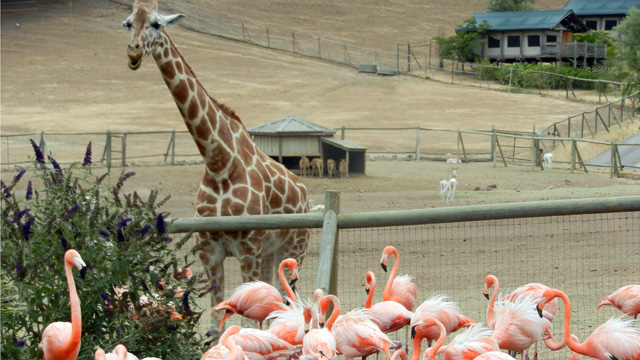http://www.kqed.org/.stream/anon/radio/tcrmag/2014/07/2014-07-04g-tcrmag.mp3
Sonoma County is famous for being a wine mecca, but in the sleepy, steep hills of Santa Rosa lies a unique hidden treasure. The area is home to Safari West, a wildlife preserve with about 800 exotic African animals.
This is not your average zoo. The animals are not trained pets and do not sit in cages, but instead live in their own natural habitats. Petting the animals is not allowed but visitors to the 400-acre attraction get a firsthand glimpse of an African Serengeti. Even the plants are indigenous to Southern Africa.
A visit to Safari West includes a two-hour tour in an open-air Korean War-era jeep. During the tour, visitors see rhinos, zebras and buffalo, all grazing within arm’s reach, and hear the squawking sounds of parrots and flamingos. Tourists have the option of riding on the top level of the double-decker safari truck, which offers eye-level views with slow-moving giraffes.
“The animals are captive but they’re not domesticated, so everything has the potential of being dangerous,” Daniel Cusimano, a Safari West guide, says during a recent tour. “As the animals do get pretty close to the truck, I beg of you not to reach your hands out and try to touch them. Petting your dog or cat is not the same as poking a 3,000-pound giraffe in the face.”
